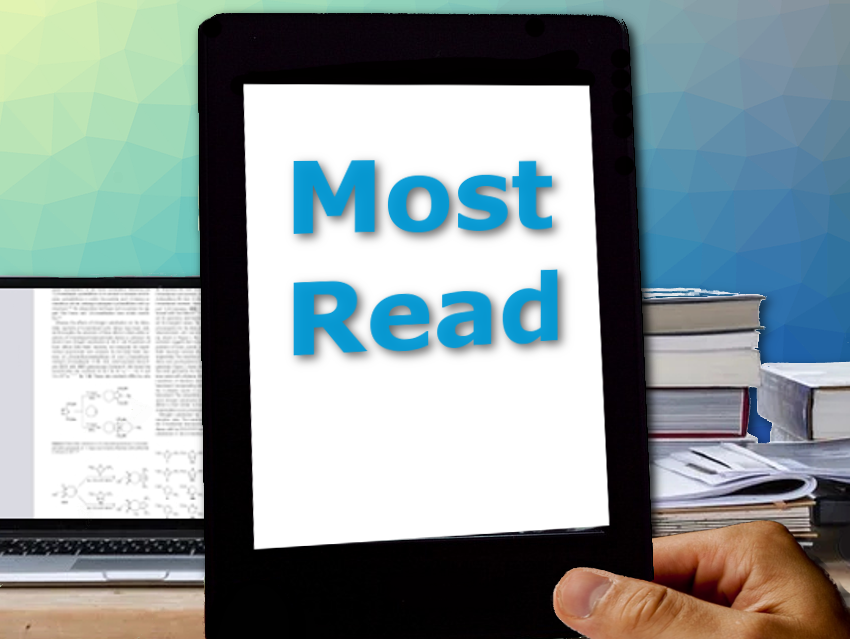Summer is the perfect time to take a break from the lab and catch up on some leisure reading. But this does not mean that you need to stay away from science entirely. ChemViews Magazine has collected recommendations by Editors for entertaining books related to chemistry, science, technology, and the future.
This year, you can send us your own recommendations and have the chance to win books and power banks.
 |
The Serengeti Rules: The Quest to Discover How Life Works and Why It Matters The book covers important discoveries concerning the regulation of physiological or ecological processes. The overall message is that the balance of an ecosystem is governed by similar rules as that of a cell and that a disruption of this balance can lead to dramatic consequences. On the flipside, if we understand how an ecosystem works, we can also undertake measures to repair it. (suggested by Greta Heydenrych, ChemPhotoChem) |
 |
We Have No Idea: A Guide to the Unknown Universe The book explains everything we don’t know about the Universe, from cosmic rays and dark matter to time travel and the big bang in an entertaining way. (suggested by Matteo Cavalleri, International Journal of Quantum Chemistry) |
|
|
|
 |
The Powerhouse: America, China, and the Great Battery War This book gives a look behind the scenes of the science and technology in modern battery development, focusing particularly on Argonne National Laboratory, USA. It also gives some insight into the the general process of high-stakes science, including managing large egos, funding uncertainty, scientific setbacks, and deciding who you can trust. (suggested by John Uhlrich, Energy Technology) |
 |
Predictably Irrational: The Hidden Forces That Shape Our Decisions This book explains how and why humans consistently make irrational decisions—in a very entertaining way and based on behavioral economics research. (suggested by Catharina Goedecke, ChemistryViews.org) |
|
|
|
 |
The Strangest Man: The Hidden Life of Paul Dirac, Mystic of the Atom This book is a comprehensive and entertaining biography of one of the fathers of quantum theory, Nobel Laureate Paul Dirac. (suggested by Eva Wille, Wiley-VCH) |
|
|
|

|
The Birds, the Bees and the Platypuses: Crazy, Sexy and Cool Stories from Science This book is a treasure trove of the author’s favorite science stories. (suggested by Li Grundl, Advanced Synthesis & Catalysis) |
 |
Spineless This book is a collection of fascinating images of marine invertebrates, combined with profiles describing each species. (suggested by Vera Köster, ChemistryViews.org) |
|
|
|
 |
The Undoing Project: A Friendship That Changed Our Minds This book is about a collaboration between two psychologists, fascinating individuals with fundamentally divergent characters who may well have changed our view of the human mind. (suggested by Rachel Schmidt-Radde, ChemPlusChem)
|
 |
It Can’t Happen Here This novel was written more than 80 years ago but when you read it today you cannot avoid drawing parallels between the campaigns of the fictional Buzz Windrip running for president in 1936 and Donald Trump. But, of course, what happens in the book after Windrip is elected can’t happen here today … (suggested by Haymo Ross, European Journal of Organic Chemistry) |
 |
The Idea Factory: Bell Labs and the Great Age of American Innovation This book outlines the history of Bell Labs, including its central role in the development of the digital information age. Starting from research efforts in fundamental science, the work at Bell Labs led the way to not only the modern telephone system, but also to transistors, lasers, satellites, the integrated circuit, modern computing, solar cells, the CCD camera, and radar, among countless other technologies. A must read to understand the origins of modern technology. (suggested by John Uhlrich, Energy Technology) |
 |
Candid Science: Conversations with Famous Chemists This book is a collection of interviews with famous chemists, which successfully transform those abstract names in the textbook into humans. (suggested by Li Grundl, Advanced Synthesis & Catalysis) |
Also of Interest
-
Send us your own recommendations for books related to science, technology, or the future and win a power bank.



